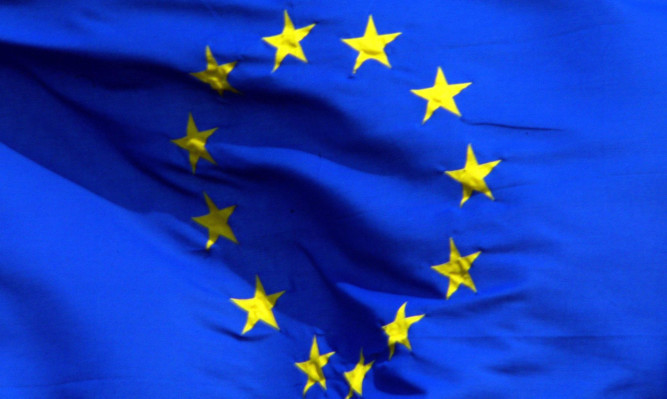
Leading advocate believes Scotland could quickly become an independent member but would have to revisit tuition fees policy.
Mr Aidan O’Neill QC said EU members would be keen to keep access to Scotland’s substantial fisheries and oil resources. However, the expert on European Union law who has written several legal text books on the subject also added: “I do not think, however, that there will be any automatic granting to an independent Scotland of all the opt-outs which the UK currently has like the Euro, Schengen, common area of security and justice.
“All this will be subject to negotiations and the need for unanimity of all the existing member States including the remainder of the UK.”
He also said further education tuition fees would need to be rethought in an independent Scotland.
He said: “One thing which I certainly do not see as happening is that there will be any Treaty amendment to allow an independent Scotland to discriminate against students from the rest of the UK, as they arguably already unlawfully currently do in charging non-Scottish UK students full university fees but letting Scots and other EU members have a pass on university fees.
“As a matter of EU law an independent Scotland which was a member of the EU would have to treat non-Scots from elsewhere in the EU, including those from the remaining UK in the same way as they treat other students.
“This means that the rest of the UK students currently being charged for attending Scottish universities will have to go free or that Scottish students will have to be charged at the same levels as they would be.”
It comes after weeks of controversy over an independent Scotland’s future in the EU.
At the start of July, an Oxford academic said Scotland’s entry to the EU would be “relatively smooth and straightforward”. Prof Sionaidh Douglas-Scott said it would be possible for Scotland to have uninterrupted membership in a published study.
But Better Together campaigners seized on the European Commission’s new president Jean-Claude Juncker who said he expected no new EU members until 2019 last week.
Mr Juncker said the EU needs to “take a break” from expansion. Pro-UK campaigners seized on the president’s remarks, claiming they made it clear that a Yes vote the referendum would also be a vote to leave the EU.
But it was reported that Mr Juncker’s spokeswoman said she was not referring to Scotland in his comments.
That saw Deputy first minister Nicola Sturgeon claim the No camp had “wilfully twisted” Mr Juncker’s words and demand an apology. She said: “This blatant act of dishonesty is a major blow to the credibility of the No campaign.
“In their desperation to talk Scotland down and spread fears and smears, the No camp have wilfully twisted what Mr Juncker said. They said that Mr Juncker was talking about Scotland and his spokeswoman has confirmed that he was not. Their claims now lie in tatters.
“The No campaign are guilty of distorting remarks by the newly-elected president of the European Commission, which is an extremely serious matter. They must withdraw their bogus assertions as a matter of urgency and issue a public apology.”

Enjoy the convenience of having The Sunday Post delivered as a digital ePaper straight to your smartphone, tablet or computer.
Subscribe for only £5.49 a month and enjoy all the benefits of the printed paper as a digital replica.
Subscribe